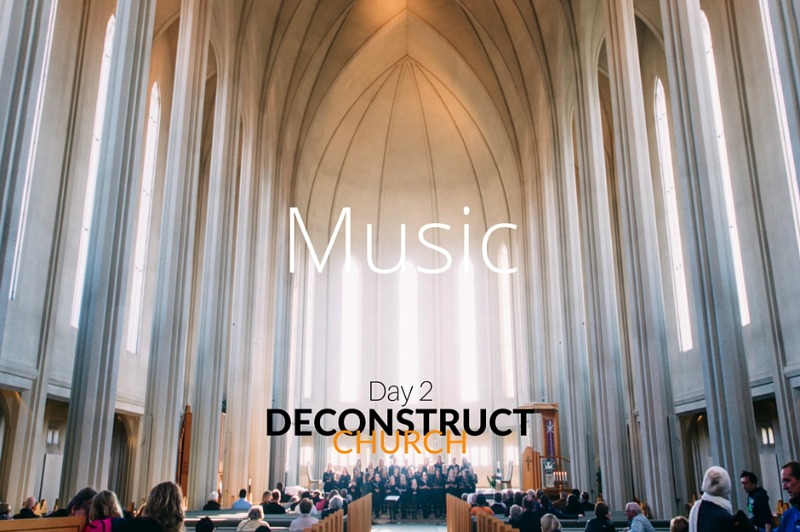I was raised on Peter, Paul, and Mary and Pete Seeger. We listened to show tunes and the Beatles. Total Boomer parents. A flower child’s child.
And the culture outside our house was the last hurrah of Top-40 radio: the era when everybody really did hear the same songs on the radio. Before the whole industry became niche. In spite of that, the first music that truly spoke to me, came in flannel and played crunching guitars. My jam was Pearl Jam.
Crunching guitar noise, grunge, shoegazing, and post-rock, punk and emo and hardcore.
Electronic, ambient, trip hop, dub step, and IDM.
A little rap: Public Enemy and Aceyalone, some Beastie Boys.
And certainly singer-songwriter, folk, mopecore, indie.
Soaring sopranos, plaintive tenors, and growling altos and basses.
I like my music to emote: to draw something out of me and challenge my heart to beat some more. The kind that dares you to get up and move and makes it impossible not to join in.
Music has the power to mess us up. But do we let it?
Is our music messing with us and moving us?
Or is it only messing with us? Can our new friends even sing along? And if it’s not messing with us, what do we do with it?
Not my music, but the way I make music
My friend, Jess likes folk music. And she also likes church folk music. I like it too. When its message is good or its current. And she asked me in seminary once
Don’t you want music in church to sound like the music you like?
And my glib response was
I don’t want to hear Eminem in church.
I felt good about it myself, particularly as I was still dealing with my own Anglo-Catholic sensibilities. But I don’t think I was being intellectually honest to her earnest question.
We have this shorthand about music and we don’t have an honest conversation about our intentions with music and church. She was asking a new version of a familiar question and I was rejecting it as the same question from 40 years ago. But it isn’t. Not really. Because she isn’t asking me to play Eminem in church. She is asking me if church music has to be different from “secular” music. In our tradition, they are really, really different.
The inverse question for many evangelicals is this: must our worship music imitate popular music? What would it be to expect to learn different music from church?
What Jess was getting at is the same refrain I’ve heard from within my traditional church. Much of our beautiful music is written in four-part harmonies presented in a music book and read. But humans have always first learned music by listening and singing along. This is a skill many of our youth have developed for generations: from singles and top-40 radio to YouTube and Spotify.
Ultimately, the church is forced to answer these two questions:
- Shall we worship GOD in a different way from the way we worship a lover’s body in song or use the familiar to evoke new emotions, thoughts, and relationships to GOD and creation?
- Shall we actually teach people to sing classically or engage our natural skills, talents, and abilities in the most inclusive way possible?
Ask Yourself
Instead of thinking about what you like, think about what provokes you, confounds you, pushes you in music. Both in general and in church. What drives you to sing? What in the music, in the performance, in the group, in the experience most drives you to sing?
What brings you to your feet? What lifts your heart up? What makes praise easier?
What disorients or causes you to reflect on your own singing? What makes it so you don’t participate in singing? What makes it so you don’t want to join in?
Where are you with these other people when you sing? Are you present or far away? Are you stiff as a rod or do you move?
When does music get you out of your head? When does it get you out of your heart? When does it expose you to your limitations? When does it challenge and drive you to give? When do you experience the gospel in song? When do you only hear words describing the gospel in song?
Does your church’s music only comfort you rather than making space for some of it to challenge you? What is it to make music in church that isn’t only easy or familiar? Does your church even try to challenge you? Do you learn anything new? Does anyone create new music for your community? What would it mean for you and your church to offer a new thing to GOD?
Is your heart open enough to accept music that moves everyone else and does nothing for you? Is it open enough to let even that move you? Open you? Propel you to worship?
And, on the practical side, what are you willing to do to make church music better in your context?
[For an example of a church that blends these concerns into a profoundly engaging musical worship experience, see COTA.]
[This is Day 2 of How to start deconstructing church. The next in the series is “Church“. To start from the beginning, read the introduction here.]


Leave a Reply